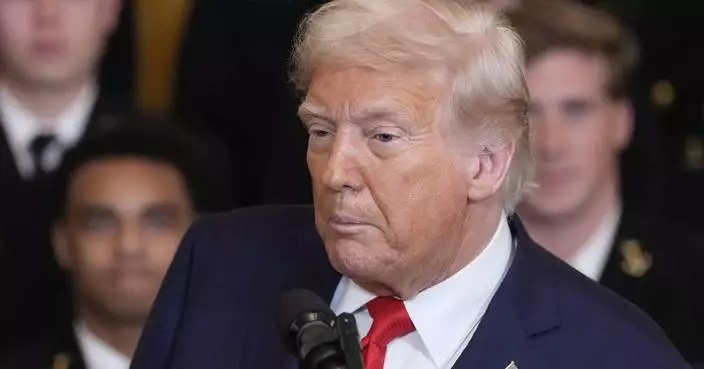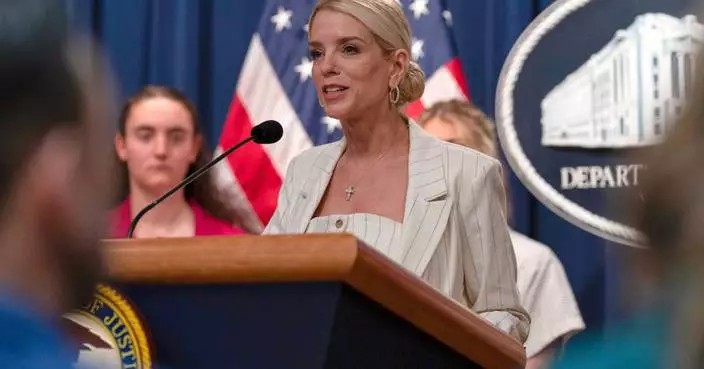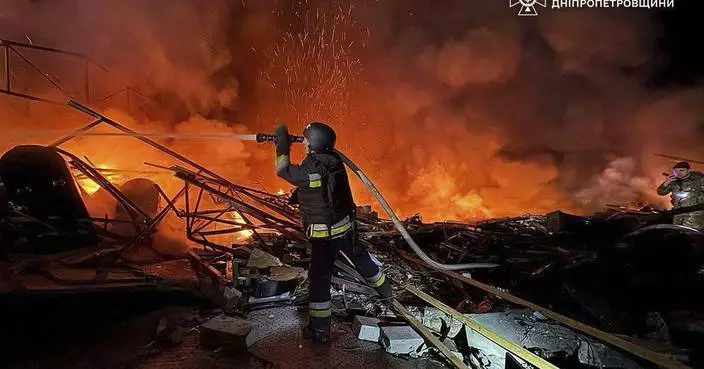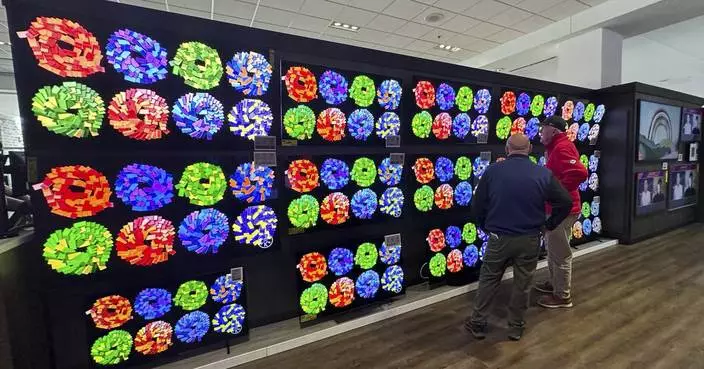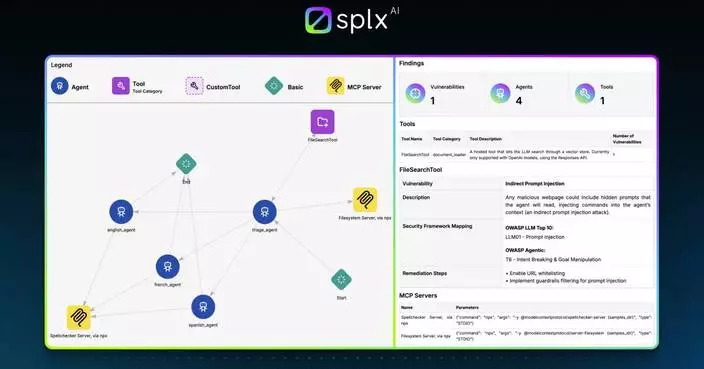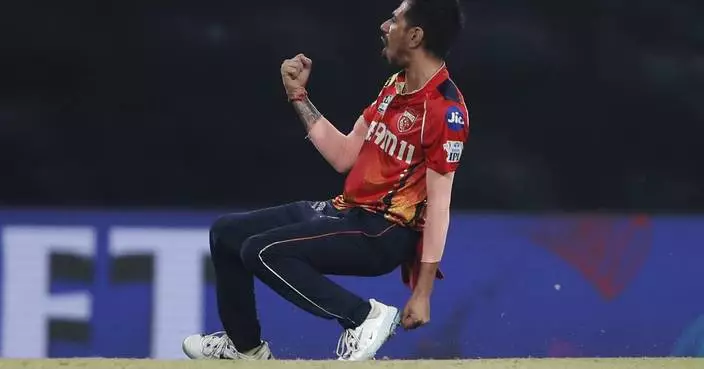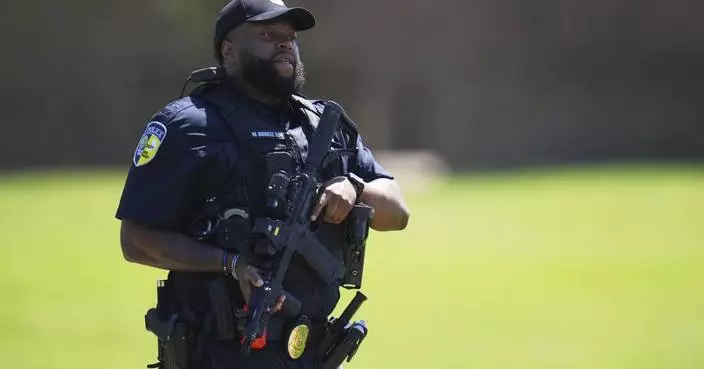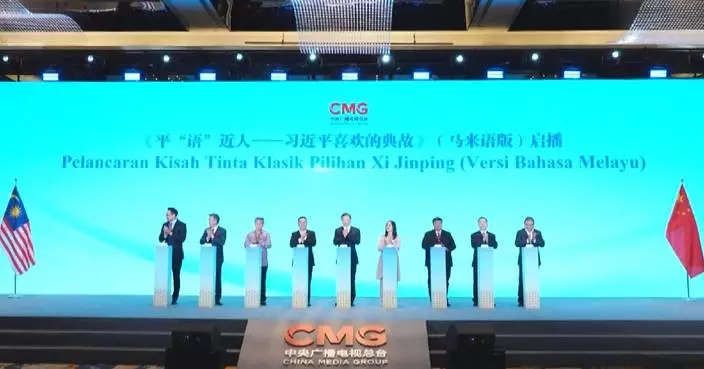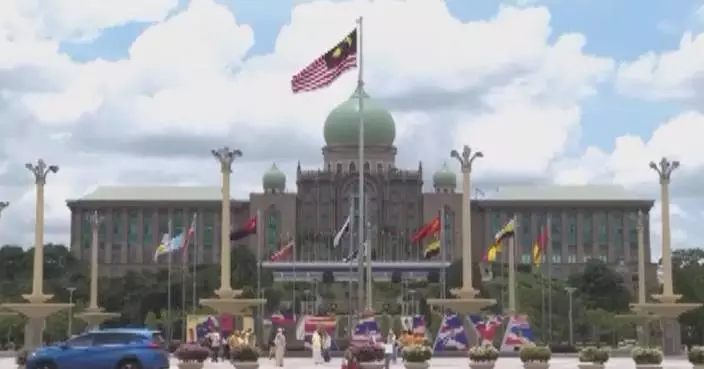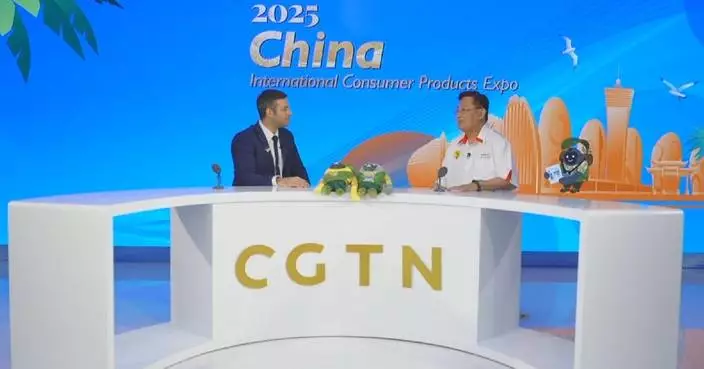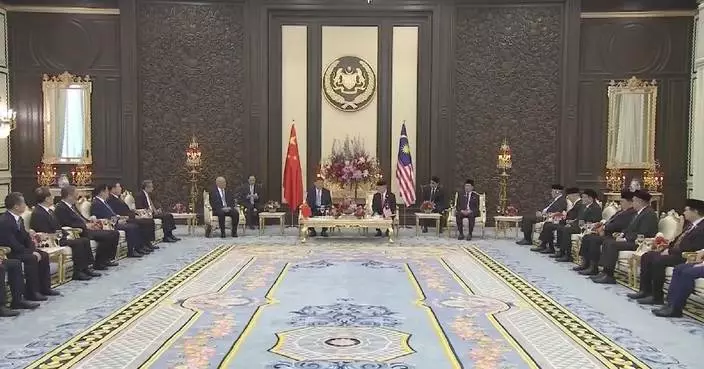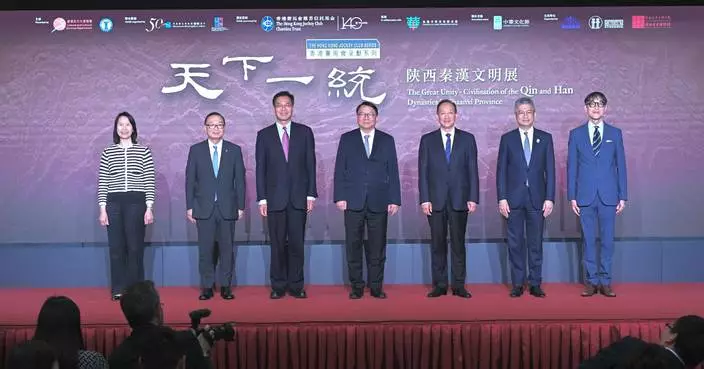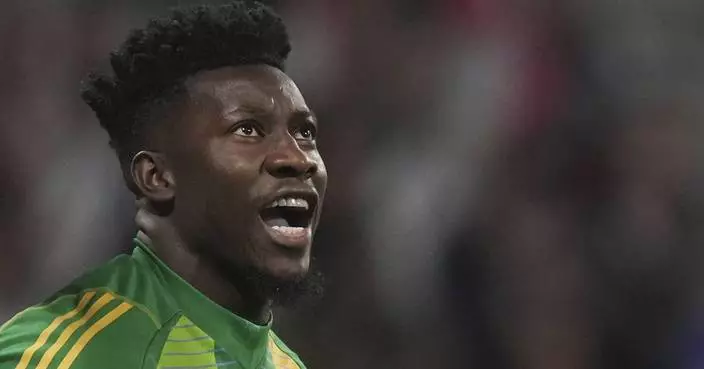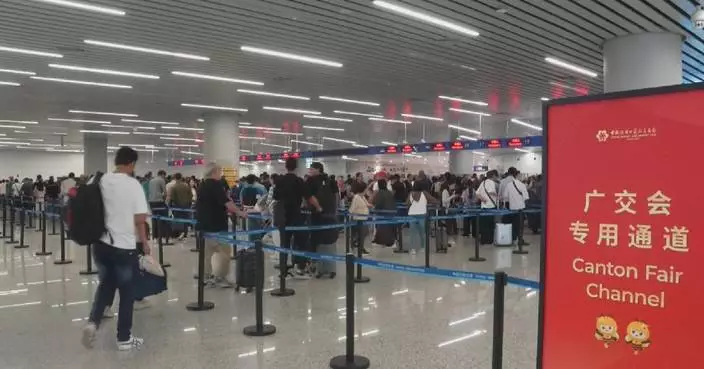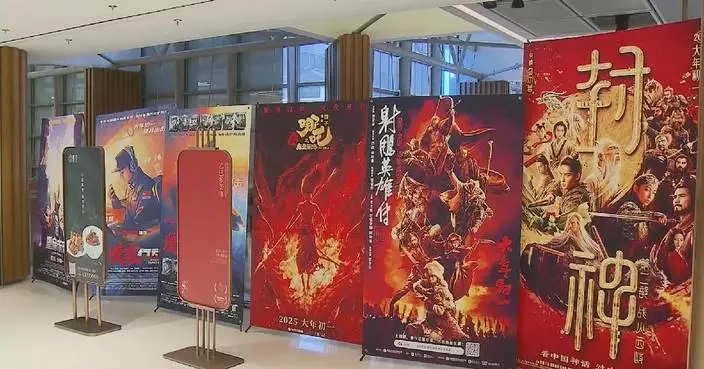HOUSTON (AP) — A fan grabbed the ball out of Mike Trout's glove after the Los Angeles Angels star reached into the right field stands Saturday night to make what appeared to be a great catch against the Houston Astros.
Trout raced into the right-field corner on the fly ball hit by Yainer Diaz in the second inning of the Angels' 4-1 win, leaped and extended his left arm into the stands to make the grab. But a fan wearing an Astros jersey was also reaching for the ball at the same time.
The ball appeared to simultaneously glance off the fan's hand while Trout made the catch. The fan immediately snatched the ball from Trout's glove with his left hand.
Trout gestured emphatically to umpires that the fan had taken it out of his glove. The fan then looked as if he was trying to give the ball back to Trout, raising both arms while holding the ball in his right hand.
“I jumped in, it was in my glove and the guy just literally took it out,” Trout said after the game. “He was really apologetic. I learn new things every single day. Once I go into the stands, it’s free game. Being in center field is a little different because I don’t really get that play.”
Trout, who hit a two-run single in the first, moved from center field to right field this season to reduce wear and tear on his body and help him stay on the field.
First base umpire Alan Porter ruled it a foul ball and not a catch. Angels manager Ron Washington came out to discuss the play with the umpires, but the ruling stood and was not reviewed by replay.
“He said it doesn’t matter,” Trout said of what he was told by Porter. “As soon as your glove goes into the stands, it’s fair game. And if it hits their finger or the ball hits their hand, I guess it’s ruled dead. I guess if you saw the replay, it hits his hand first, then goes in my glove. So even if I would have come back out (with the ball), they probably could have challenged it. That was my understanding.”
Washington said he was told he could have challenged the play, but didn’t want to risk losing his challenge at that point in the game.
“I thought he had it and we looked at it,” Washington said. “It looked like a fan pulled it out of his glove as he was coming out, but I would have had to use a challenge. And if the umpires didn’t do that, I would have lost it early.”
Porter, who is the crew chief, told a pool reporter after the game that the play was reviewable, but is also a judgment call.
“The fly ball was in the stands — it was not over the field of play,” Porter said. “Once the ball is outside of the field of play, the fielder goes into the stands at his own risk. So, the ball being touched by the fan does not create spectator interference at that point.”
The fan and his son were escorted out of the section by security and moved to a different section. Trout had security bring the fan and his son down to the Angels clubhouse after the game. Trout gave the fan’s son a bat and signed the ball. He also took a picture with the fan and his son.
“They were really apologetic,” Trout said. “It didn’t really affect the game. I have a kid myself. That kid was probably 9 years old, so just seeing him after the game, they were really nice people.”
Diaz ended up flying out to center to end the inning.
The play was reminiscent of Game 4 of last year’s World Series when two fans interfered with him and one pried a foul ball out of the glove of Dodgers’ Mookie Betts at Yankee Stadium. However, umpires ruled that was fan interference and a catch by Betts.
—
AP MLB: https://apnews.com/hub/mlb

Los Angeles Angels' Mike Trout bats during the third inning of a baseball game against the Houston Astros, Saturday, April 12, 2025, in Houston. (AP Photo/Kevin M. Cox)

Los Angeles Angels' Mike Trout leads off first base during the first inning of a baseball game against the Houston Astros, Saturday, April 12, 2025, in Houston. (AP Photo/Kevin M. Cox)

Los Angeles Angels second baseman Kyren Paris (19) and right fielder Mike Trout (27) celebrate after a baseball game against the Houston Astros, Saturday, April 12, 2025, in Houston. (AP Photo/Kevin M. Cox)

Los Angeles Angels' Mike Trout, right, celebrates after his home run with first base coach Bo Porter (88) as he rounds the bases against the Houston Astros during the fourth inning of a baseball game Friday, April 11, 2025, in Houston. (AP Photo/Michael Wyke)
WASHINGTON (AP) — At first, the bar association for immigration attorneys began receiving inquiries from a couple students a day. These were foreigners studying in the U.S., and they'd discovered in early April their legal status had been terminated with little notice. To their knowledge, none of the students had committed a deportable offense.
In recent days, the calls have begun flooding in. Hundreds of students have been calling to say they have lost legal status, seeking advice on what to do next.
“We thought it was going to be something that was unusual,” said Matthew Maiona, a Boston-based immigration attorney who is getting about six calls a day from panicked international students. “But it seems now like it’s coming pretty fast and furious.”
The speed and scope of the federal government's efforts to terminate the legal status of international students have stunned colleges across the country. Few corners of higher education have been untouched, as schools ranging from prestigious private universities, large public research institutions and tiny liberal arts colleges discover status terminations one after another among their students.
At least 901 students at more than 128 colleges and universities have had their visas revoked or their legal status terminated in recent weeks, according to an Associated Press review of university statements and correspondence with school officials. Advocacy groups collecting reports from colleges say hundreds more students could be caught up in the crackdown.
Around 1.1 million international students were in the United States last year — a source of essential revenue for tuition-driven colleges. International students are not eligible for federal financial aid, and their ability to pay tuition often factors into whether they will be admitted to American schools. Often, they pay full price.
Many of the students losing their legal status are from India and China, which together account for more than half the international students at American colleges. But the terminations have not been limited to those from any one part of the world, lawyers said.
Four students from two Michigan universities are suing Trump administration officials after their F-1 student status was terminated last week. Their attorney with the American Civil Liberties Union, Ramis Wadood, said the students never received a clear reason why.
“We don’t know, and that’s the scary part,” he said.
The students were informed of the status terminations by their universities via email, which came as a shock, Wadood said. The reason given was that there was a “criminal records check and/or that their visa was revoked,” Wadood said, but none of them were charged or convicted of crimes. Some had either speeding or parking tickets, but one didn’t have any, he said. Only one of the students had known their entry visa was revoked, Wadood said.
Last month, Secretary of State Marco Rubio said the State Department was revoking visas held by visitors who were acting counter to national interests, including some who protested Israel's war in Gaza and those who face criminal charges.
But many students say they don't fall under those categories. Students have filed lawsuits in several states, arguing they were denied due process.
In New Hampshire, a federal judge last week granted a temporary restraining order to restore the status of a Ph.D. student at Dartmouth College, Xiaotian Liu. On Tuesday, a federal judge in Wisconsin issued a similar order, ruling the government could not take steps to detain or revoke the visa of a University of Wisconsin-Madison gradate student.
Two graduate students at Montana State University, Bozeman, on Tuesday were granted a temporary restraining order by a federal judge in Montana, restoring their terminated legal status and shielding them from efforts to remove them from the U.S.
At many colleges, officials learned the legal immigration status of some international students had been terminated when staff checked a database managed by the Department of Homeland Security. In the past, college officials say, legal statuses typically were updated after colleges told the government the students were no longer studying at the school.
The system to track enrollment and movements of international students came under the control of Immigration and Customs Enforcement after 9/11, said Fanta Aw, CEO of NAFSA, an association of international educators. She said recent developments have left students fearful of how quickly they can be on the wrong side of enforcement.
“You don’t need more than a small number to create fear,” Aw said. “There’s no clarity of what are the reasons and how far the reach of this is.”
Her group says as many as 1,300 students have lost visas or had their status terminated, based on reports from colleges.
The Department of Homeland Security and State Department did not respond to messages seeking comment.
Foreigners who are subject to removal proceedings are usually sent a notice to appear in immigration court on a certain date, but lawyers say affected students have not received any notices, leaving them unsure of next steps to take.
Some schools have told students to leave the country to avoid the risk of being detained or deported. But some students have appealed the terminations and stayed in the United States while those are processed.
Still others caught in legal limbo aren't students at all. They had remained in the U.S. post-graduation on “optional practical training,” a one-year period — or up to three for science and technology graduates — that allows employment in the U.S. after completing an academic degree. During that time, a graduate works in their field and waits to receive their H-1B or other employment visas if they wish to keep working in the U.S.
Around 242,000 foreigners in the U.S. are employed through this “optional practical training.” About 500,000 are pursuing graduate degrees, and another 342,000 are undergraduate students.
Among the students who have filed lawsuits is a Georgia Tech Ph.D. student who is supposed to graduate on May 5, with a job offer to join the faculty. His attorney Charles Kuck said the student was likely targeted for termination because of an unpaid traffic fine from when the student lent his car to a friend. Ultimately, the violation was dismissed.
“We have case after case after case exactly like that, where there is no underlying crime,” said Kuck, who is representing 17 students in the federal lawsuit. He said his law firm has heard from hundreds of students.
“These are kids who now, under the Trump administration, realize their position is fragile,” he said. “They’ve preyed on a very vulnerable population. These kids aren’t hiding. They’re in school.”
Some international students have been adapting their daily routines.
A Ph.D. student from China at University of North Carolina at Chapel Hill said she has begun carrying around her passport and immigration paperwork at the advice of the university’s international student office. The student, who spoke on condition of anonymity for fear of being targeted by authorities, said she has been distressed to see the terminations even for students like her without criminal records.
Seminera reported from Raleigh, N.C., and Keller reported from Albuquerque, N.M.
The Associated Press’ education coverage receives financial support from multiple private foundations. AP is solely responsible for all content. Find AP’s standards for working with philanthropies, a list of supporters and funded coverage areas at AP.org.
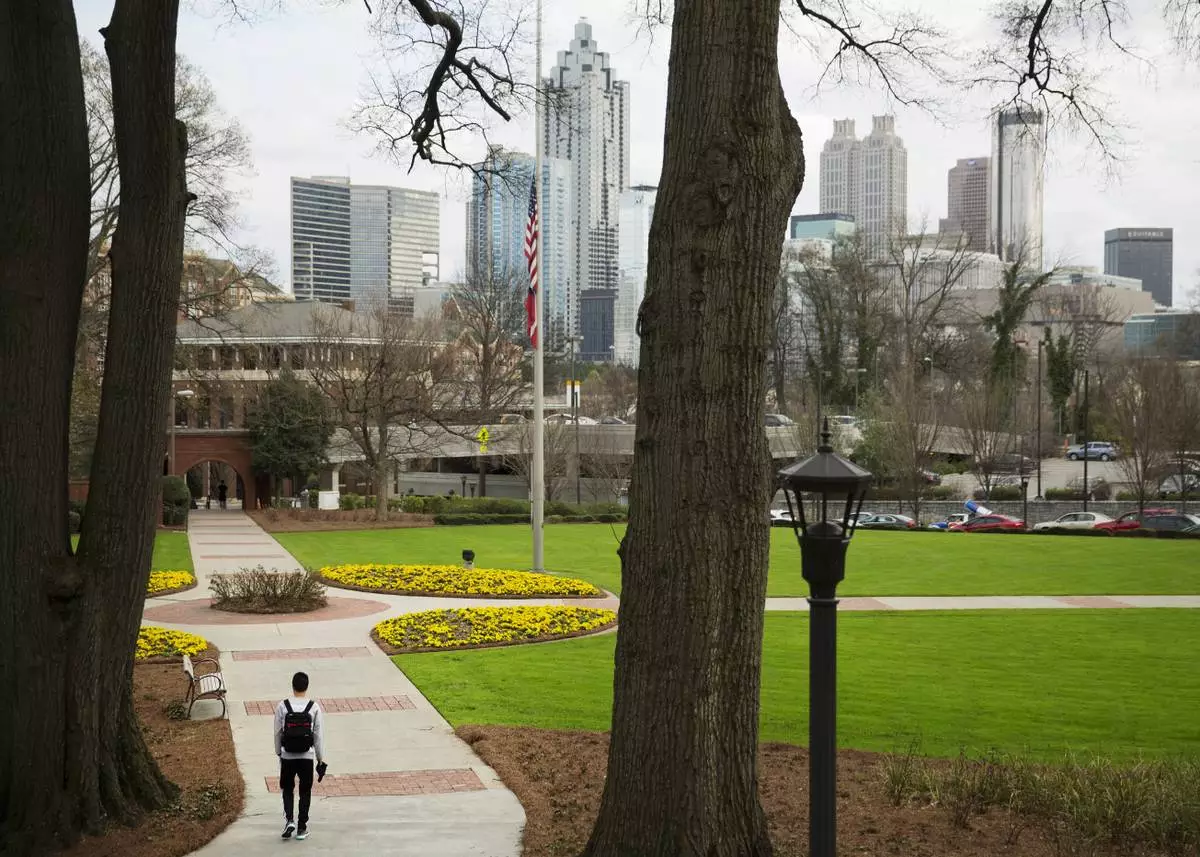
FILE - A person walks through the Georgia Tech campus with the downtown skyline in the background, March 11, 2016, in Atlanta. (AP Photo/David Goldman, File)










